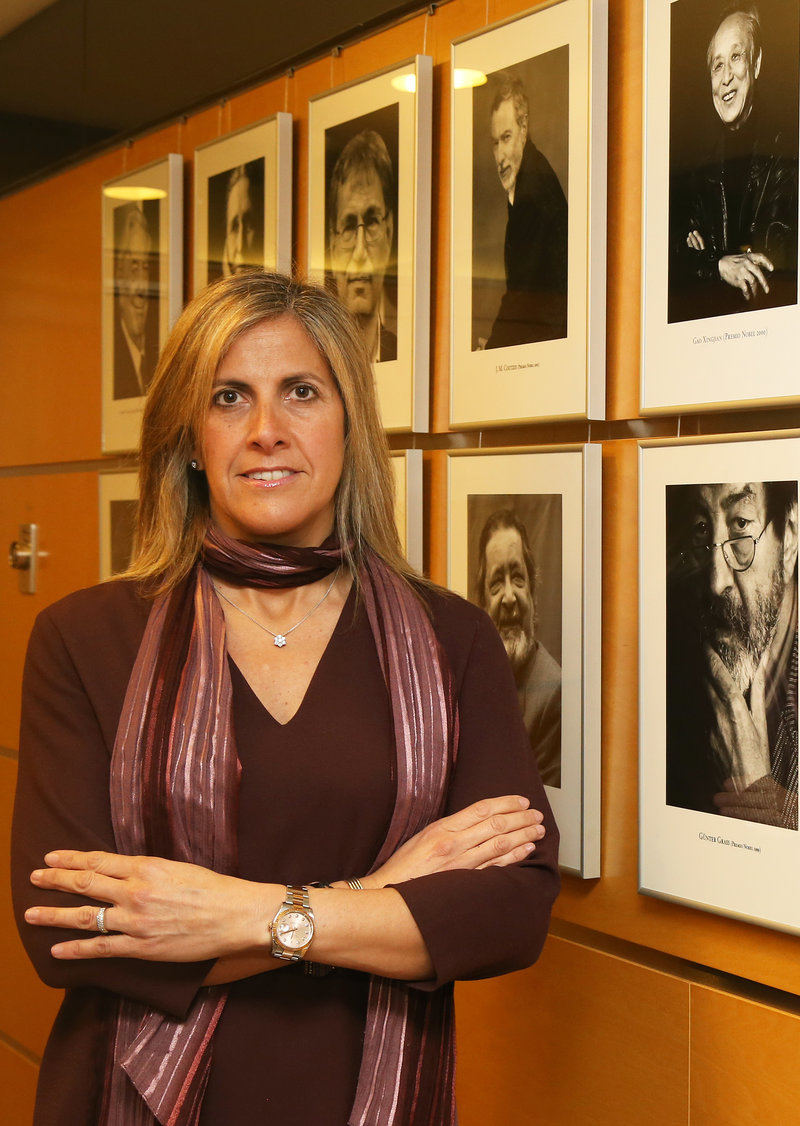Interview
Núria Cabutí
'The book market is stable'
The head of the publishing consortium says that after some years of crisis, things are looking up in the industry thanks to digitalisation and more young readers
'Paper books are a fantastic instrument for reading, despite new technology'
Núria Cabutí (Barcelona, 1967) is in charge of the Penguin Random House Grup Editorial, a world leader for publications in Spanish. Based in Barcelona, the group publishes over 1,300 titles every year, employs a staff of almost 1,000 people and works in 45 markets. Their catalogue of authors includes 37 Nobel prize winners.
What is Penguin Random Group Editorial?
It is a union of many different publishers, which aims to reach a potential market in Spanish of 500 million people, through 33 editorial brands. At international level, our group belongs to Bertelsman & Pearson, world leaders in English, Spanish and German publications.
Many of your brands have a long history.
Yes, indeed, Bertelsman acquired Plaza & Janés in the 1990s; afterwards, Lumen, Debate and Beascoa followed, and little by little, we've got to a union of 33.
What are your main publishing lines?
We deal with the leisure market, which embraces all kinds of publications for grown-ups, children and young readers alike. For instance, we publish fiction and non-fiction and essays in Taurus and Debate; more commercial fiction, through brands, such as Plaza i Janés or Grijalbo, and also books of more literary fiction, in addition to a lot of children's literature. In Catalan, we have the Rosa dels Vents brand, set up by Josep Janés, which we have maintained, and through which we publish our new books in Catalan for grown-ups.
You've been running this company since 2010. What have been the difficulties and what are the main challenges you face at the moment?
In 2010 the macro-economic situation was very complicated, and my aim was to save the project at a time when the market was falling apart. I had to make it possible to save not just the publishing brands but also the staff, and at the same time see which new projects to develop. We had two goals, one was digital transformation, which we managed to complete, as we are now leaders in the digital market in Spanish; at the same time, there was the project of developing the South American markets, which have grown a lot since 2010. During this time we also acquired Santillana Ediciones Generales, Taurus and Alfaguara, which has helped us a lot in reinforcing our leadership on the market.
Are digital books the future? Will books on paper continue to exist as we know them today?
During the process of going digital, we always thought that paper books are a fantastic instrument for reading, despite the new technology. A very important part of our sales will continue to be on paper and we think it will continue to exist for many years. In fact, in the US, where the digital market is more developed, digital books represent 25% of the market, and it is quite stable. All this makes us think that books on paper will still have a very important role in the future.
The technological change coincided with the economic crisis. Have we got over the fall in consumption?
The book market in Catalonia is now stable. The decrease was major and we managed to recover some part of it, but we lost about 30% of sales. However, that doesn't mean people don't read. In fact, people read increasingly more, but there was a crisis in consumption, and then piracy also ate into a good chunk of the market. But the good news is that reading habits are growing, especially among young readers. Bringing new readers on board is excellent: this a very active sector of the market, in which we have a lot of confidence.
Leave a comment
Sign in.
Sign in if you are already a verified reader.
I want to become verified reader.
To leave comments on the website you must be a verified reader.
Note: To leave comments on the website you must be a verified reader and accept the conditions of use.

